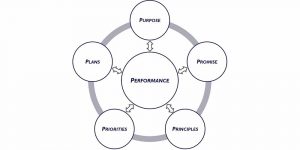Leading edge thinking on inclusion and diversity
UGM approach to D&I proven cutting edge
During my high school days I blew my trumpet often, in the marching band. In our boutique management consultancy, we tend to do that a lot less than our competitors. Today though, we’d like to share how research on inclusion and diversity, released by Bersin by Deloitte in the US, supports the approach that UGM Consulting has been helping clients implement for more than a decade already.
In those earlier years, and in many cases still today, a lot of competitors were giving businesses what we felt was outdated advice that had no evidence it worked! There wasn’t a focus on inclusion and diversity. Readers can draw their own conclusions about effectiveness, based on the lack of progress in the field even in the light of significant expenditure.
It’s especially gratifying since this new research provides triangulation for our earlier and continuing research which informs the UGM approach. Importantly, it will be helpful to the cause when organisations implement proven, evidence-based approaches that have a good chance of success!
The focus is finally on building inclusive cultures!
Bersin by Deloitte’s large scale research is certainly a welcome contribution to the field. They found inclusive organisations were six times more likely to be innovative. Unsurprisingly, they were also six times more likely to be able to anticipate and respond effectively to change. Finally, for those interested in only the bottom line, inclusive organisations were twice as likely to meet or exceed financial targets. What is there not to like!
In terms of the maturity of inclusive organisations, the new research found there were four levels, namely compliance-focused diversity, programmatic D&I, leader-owned D&I and inclusive culture. The focus shifts from diversity only to inclusion and diversity.
UGM’s inclusive culture framework, published back in 2014, has three levels: compliant (don’t break the law!), foundational (organisation-wide sense of what it means to be inclusive), and comprehensive (a capacity and acceptance that some specialised programs might be needed to support groups that aren’t fully included or represented). Ironically, many well intentioned organisations that have moved beyond compliance try and jump to level three but by skipping level two (foundational inclusion) their special initiatives are not well regarded or accepted as promoting inclusion.
Leading principles of inclusive cultures
The new study suggests there are six principles supporting inclusive cultures. These are: seeing D&I as business critical; moving beyond ‘diversity’; prioritising inclusive leadership; embedding D&I in talent practices; providing D&I resources; and driving accountability, not metrics tracking. UGM has been advocating and implementing all of these practices for many years now, so it’s exhilarating to have further research-based vindication. We’re pleased to note our clients have already expressed satisfaction with outcomes in their organisations.
Seeing diversity as business-critical and moving to inclusion
UGM realised quite soon after advocating making the business case for inclusion and diversity that while critical, it was a mistake not to also acknowledge the social justice angle. The approaches together are much more powerful and compelling than either approach on its own.
We have also underscored the business benefits of looking to inclusion to solve particular diversity challenges (e.g. gender, culture or sexual orientation) so that when attention shifts to another group the whole process doesn’t need to start from fresh. In fact, an inclusive approach means that all marginalised or less included groups should benefit.
Prioritise inclusive leadership
Inclusive organisations do prioritise inclusive leadership. Inclusive leadership though is much, much more than demonstrating courage, curiosity and cultural intelligence. Also, while supported by inclusive leadership (and inclusive management, for that matter), inclusive cultures are ‘of the people’. This is a time when the term leadership isn’t incorrectly substituted for manager. Rather, it truly is a case of anyone who influences others being seen as exercising leadership. Everyone in an inclusive culture shares responsibility for building and sustaining it, even if only managers are accountable!
Integrate diversity practices into talent management
It is suggested that successful organisations integrate ‘demographic diversity’ and ‘diversity of thought’ into people management practices. Again this is something we have been promoting for many years. UGM uses ‘cognitive diversity’ instead of ‘diversity of thinking’, and we’re satisfied with it, since the origins are in robust academic research disciplines.
While we promote a general level of understanding about inclusive cultures, with greatest focus on behaviours (what people do!!), we do think those in talent management roles might receive nuanced diversity training that is not needed by everyone.
Provide D&I resources and drive accountability
Of course people need support! Even a basic training in understanding what it is and deciding which behaviours they will use to support inclusion helps.
In terms of metrics, if no one is to be accountable then metrics have little value. Our recommendation is that organisations develop proxy metrics, since most primary diversity metrics are slow changing. Attending to both inclusion and diversity is far more likely to deliver the outcomes organisations are seeking in this regard.
PRACTICAL IDEAS TO APPLY IN YOUR BUSINESS
Ideas from past UGM D&I briefings
- To what extent did ‘working inclusively’ feature on your last general performance conversation? Was there some discussion around the culture of the organisation (“the way we do things around here”) and inclusive work behaviours?
- Do an occasional ‘fairness scan’ on regular policies, procedures and everyday ways of working. Remind people (and celebrate) that your workplace is fair (and be sure that it is!). Make suitable changes when it’s not. Fairness is a powerful motivator (or demotivater) – so ensure it’s working in your favour.
- Train team members to listen for and probe the unstated assumptions lying beneath a colleague’s words and, in turn, to make their own assumptions transparent to others. This step will help people see the relevance of the different perspective and allow their own mental models to be challenged.



